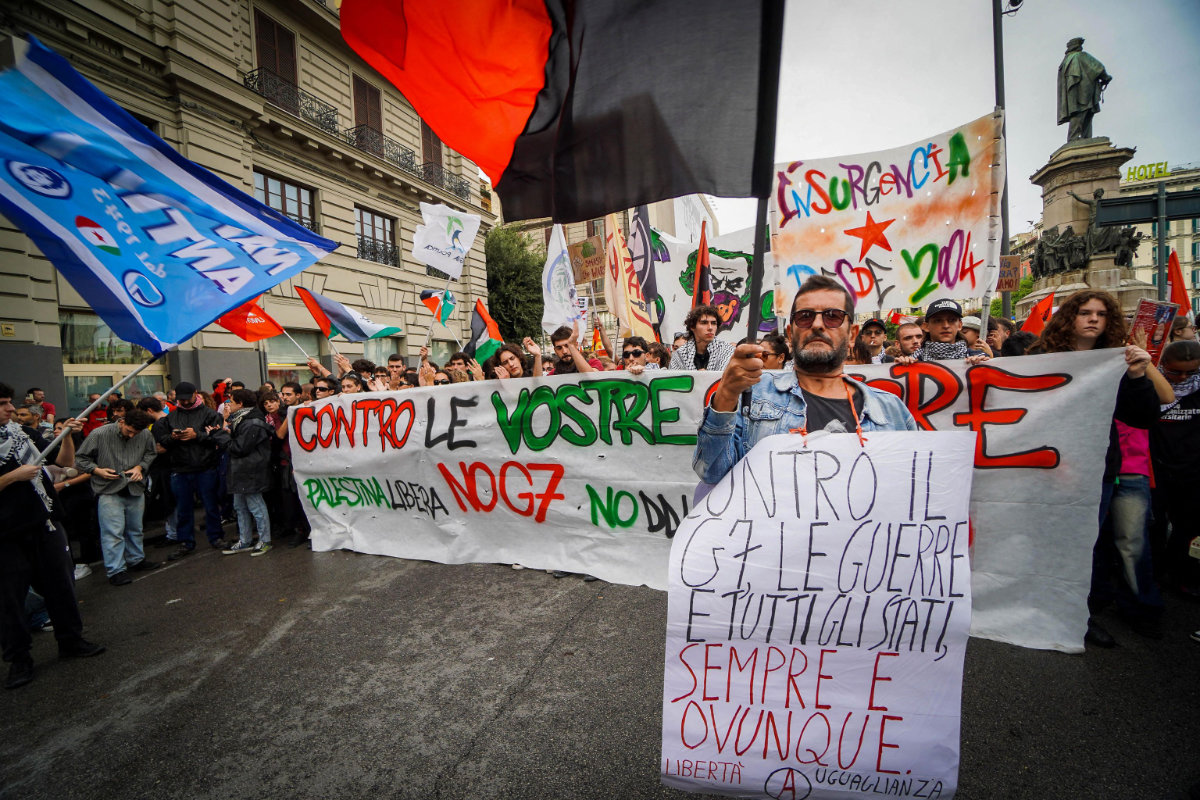NAPLES, Italy: G7 defense ministers on Saturday met against the backdrop of multiple ongoing military conflicts, expressing concern over the escalation in Lebanon while pledging “unwavering support” for Ukraine.
Italy, holding the rotating presidency of the Group of Seven countries, organized the body’s first ministerial meeting dedicated to defense, staged in the southern city of Naples that is home to a NATO base.
At the top of the agenda was Russia’s war against Ukraine, now in its third year.
“We underscore our intent to continue to provide assistance to Ukraine, including military assistance in the short and long term,” read the G7 defense ministers’ final statement that pledged “unwavering support.”
But the G7 defense ministers — from Italy, France, Germany, Britain, Japan, Canada and the United States — also warned of the dangers of further intensification in the Middle East, including in Lebanon, where the United Nations has blamed Israel for strikes on UN peacekeepers.
“We are concerned by the latest events in Lebanon and the risk of further escalation. We express concern over all threats to UNIFIL’s security,” read a final statement from the ministers.
They also called on Iran to stop supporting Hamas and Hezbollah. Iran’s Foreign Minister Abbas Araghchi met a Hamas representative in Istanbul on Saturday, according to the IRNA official news agency.

Demonstrators hold a banner which read as "Against the G7, wars and all the states, always and everywhere freedom," as the Group of Seven (G7) Defense Ministers summit is being held, in Naples on October 19, 2024. (ANSA/AFP)
The many, concurrent conflicts “highlight a deteriorated security framework with forecasts for the near future that cannot be positive,” said Italian Defense Minister Guido Crosetto at the start of the one-day meeting.
Those conflicts include instability in sub-Saharan Africa and growing tensions in the Asia-Pacific region.
The summit came two days after Israel announced it had killed Hamas chief Yahya Sinwar, mastermind of the October 7, 2023 attacks on Israel that triggered the devastating retaliatory war in Gaza.
Also in attendance were NATO chief Mark Rutte and the EU’s foreign policy chief, Josep Borrell. Both echoed the words of US President Joe Biden that the death of Sinwar could mark an opportunity to bring about the end of hostilities.
“Certainly after the killing of Yahya Sinwar, a new perspective is open and we have to use it in order to reach a ceasefire, to release the remaining hostages and to look for a political perspective,” Borrell told journalists.
The morning session included discussions over recent strikes on UN peacekeepers UNIFIL in Lebanon, where Israel is also at war with Hamas ally Hezbollah.
Borrell suggested that the peacekeepers’ mandate should be beefed up by the UN Security Council to give them more scope to act amid repeated attacks on their positions, which they blame on Israeli forces.
“They cannot act by themselves, it is certainly a limited role,” he said.
Earlier on Saturday, Borrell wrote on social media that “a more robust mandate for UNIFIL” was needed.
In Lebanon on Friday, Italy’s Prime Minister Giorgia Meloni slammed as “unacceptable” the recent strikes on UNIFIL.
Italy has around 1,000 troops in the UN peacekeeping force in Lebanon, which has soldiers from more than 50 countries.
The G7’s pledge of continued support for Ukraine comes as the country enters its third winter at war.
It is suffering battlefield losses in the east and faces the prospect of reduced US military support should Donald Trump be elected to the White House next month.
Biden urged NATO allies during a visit to Berlin on Friday not to step down in backing Ukraine. Supporters of Kyiv “cannot let up,” he said.
Ukrainian President Volodymyr Zelensky, under mounting pressure from Western allies to forge a winning strategy against Russia, on Thursday presented what he called a “victory plan” to the European Union and NATO.
Its main thrust is a call for immediate NATO membership, deemed unfeasible by alliance members.
It also seeks the clearance to strike military targets inside Russia with long-range weapons, and an undefined “non-nuclear strategic deterrence package” on Ukrainian territory.
Another worry for Ukraine are reports, based on South Korean intelligence, that North Korea is deploying large numbers of troops to support Moscow’s war against Ukraine.
NATO was not as yet able to confirm that intelligence, Rutte said on Friday.
Outside the meeting, in the streets of Naples, demonstrators carried Palestinian flags and the keffiyeh, a traditional scarf symbolising the Palestinian struggle against Israel. Some protesters clashed with police.





























